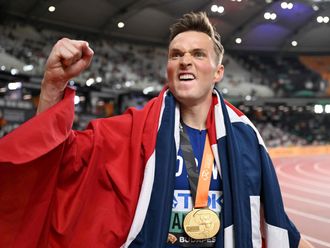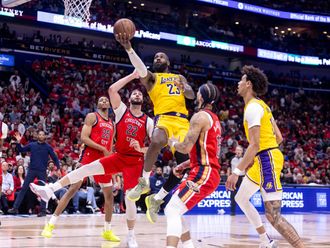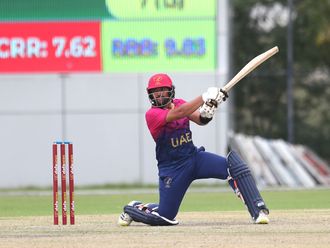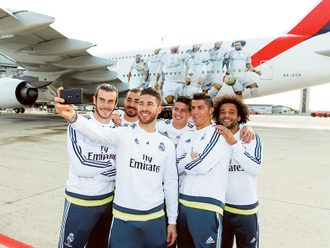Moscow: The Moscow Centre for Sports Technology is a smart, glass-fronted office building in the sleepy district of north central Moscow behind the Red Army Theatre.
In the well-lit steel and tile lobby, large flat screens run videos of Olympic sportsmen designed to inspire local children to take up a healthy lifestyle. “Do sport, and believe in yourself,” runs the tagline. This is the headquarters of a Moscow government body charged with research and development into sporting sciences, with experts working on everything from training techniques to sports nutrition.
This month, it is due to host a conference on combating doping in children’s sports. Now, though, it is at the centre of sport’s biggest doping scandal, which runs to the heart of the Russian sporting establishment. For the Moscow Centre for Sports Technology is the home of the so-called Laboratory of the Moscow Committee of Sport Identification for Prohibited Substances in Athlete Samples.
Or, as an independent commission set up by the World Anti-Doping Agency described it, a secret second laboratory which “pre-screened” blood and urine samples as part of a state-sponsored doping programme. Russian officials have reacted with a mixture of contrition and indignation to the damning report by the commission on Monday.
Dmitry Peskov, Vladimir Putin’s press secretary, called the claims “unfounded”. He told reporters yesterday: “As long as there is no evidence, it is difficult to consider the accusations, which appear rather unfounded.”
Vadim Zelichenok, the acting head of the Russian Athletics Foundation which is at the centre of the scandal, called the accusations “a political hit job”. At a press conference he said: “I hope this will not affect the morale of our athletes. There is an element of a political hit job here because quite a few things were described in a biased way.”
Meanwhile Nikita Kamaev, head of the Russian Anti-Doping Agency, branded allegations that the country’s secret services conducted surveillance of anti-doping work as the product of “an inflamed imagination”. Kamaev also confirmed that the Moscow Anti-doping Centre, Russia’s central drug-testing lab, had been closed down until further notice.
The head of Russia’s anti-doping laboratory resigned late Tuesday, an adviser to the sports minister told Russian news agencies, after he was accused of being part of a state-sponsored doping programme.
The World Anti-Doping Agency (WADA) has accused Grigory Rodchenkov of being at the heart of a scheme to cover up widespread use of illegal drugs among Russian athletes, including deliberately destroying positive test samples.
Wada stripped it of its accreditation immediately after the release of the report. Yet, the national anti-doping centre Kamaev was referring to is not officially related to the “second laboratory” housed in the Centre for Sports Technology.
Established in February 2008, the lab was meant to back up Moscow’s bid for the 2010 Summer Youth Games (hosted ultimately in Singapore). Officials said the point was to provide anti-doping services to up-and coming athletes. In its report on Monday, Wada said that it only “discovered” the existence of the lab during interviews with technicians from the central anti-doping centre. And those interviews were, it said, alarming.
“Statements of whistle-blowers and confidential witnesses have corroborated that this second laboratory is involved in the destruction and the cover-up of what would otherwise be positive doping tests,” the report said.
The laboratory does not have its own website or publicly listed phone number or address.
— The Telegraph Group Limited, London 2015











